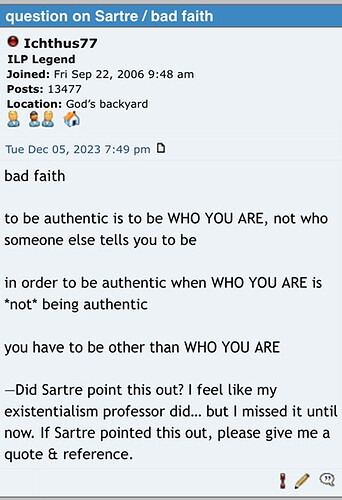Simone’s Existentialist Ethics
Anja Steinbauer on Simone de Beauvoir’s Ethics of Ambiguity.
Okay, but what we choose to do is still no less embedded out in a particular world understood in a particular way. And no less entangled in both actual options and the Benjamin Button Syndrome. That’s why I have always been curious as to how Sartre and de Beauvoir might have responded to my own far more fractured and fragmented moral philosophy. While we all came to reject God and religion, they always struck me as more inclined to believe that their own moral and political prejudices really were closer to being a more reasonable and virtuous – authentic – frame of mind.
Same with some of the No God folks here. They seem convinced that using the tools of philosophy – of science? – we don’t need religion to establish and then to sustain an optimal moral and political agenda. Scrap immortality and salvation perhaps but ideologically and/or deontologically we can still come to embody the “most rational of all worlds”.
There’s certainly a part of me that would like to believe this. Still, however “nuanced” any particular individual is in confronting this…
If I am always of the opinion that 1] my own values are rooted in dasein and 2] that there are no objective values “I” can reach, then every time I make one particular moral/political leap, I am admitting that I might have gone in the other direction…or that I might just as well have gone in the other direction. Then “I” begins to fracture and fragment to the point there is nothing able to actually keep it all together. At least not with respect to choosing sides morally and politically.
…given a particular social, political and economic context, it doesn’t make the points I raise in my signature threads go away.
Individuals are still indoctrinated as children to embrace all manner of hopelessly conflicting assessments of “reality”. And they still share the same historical and cultural and experiential parameters as adults.
Then this part…
“The individual is defined only by his relationship to the world and to other individuals…His freedom can only be achieved through the freedom of others.”
…is still no less a “general description philosophical contraption” that, in my view, doesn’t even come close to creating a truly “one-size-fits-all” Kantian rendition of moral obligations.
